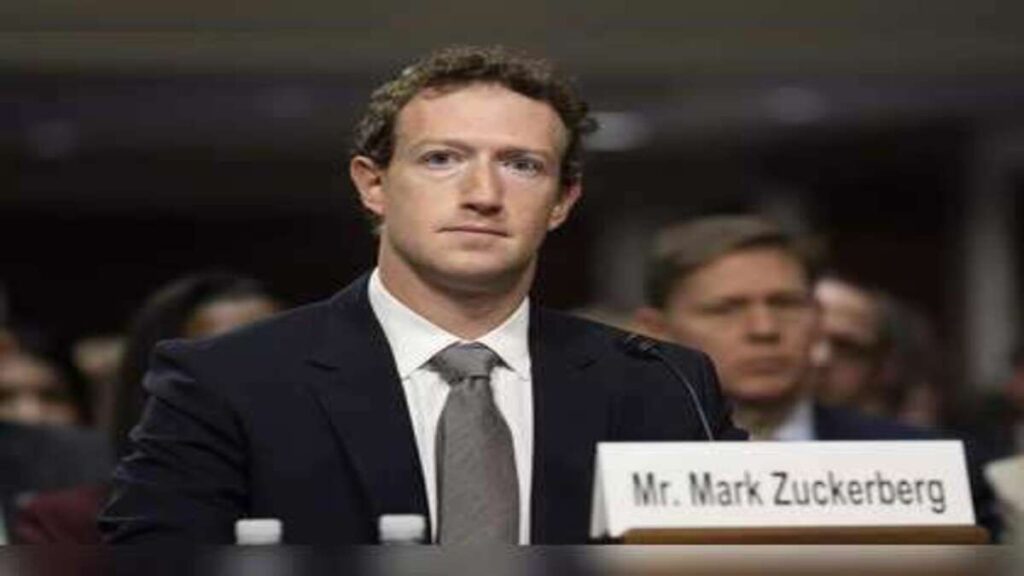
Meta, formerly known as Facebook, faces yet another legal quandary as newly revealed documents from an ongoing lawsuit shed light on CEO Mark Zuckerberg’s directives to obtain competitor Snapchat’s user data.
The lawsuit, which alleges Meta’s unlawful snooping on rival apps, offers a glimpse into Zuckerberg’s management style, leaving employees feeling uneasy over his email directives.
In the corporate world, certain messages from bosses evoke a spine-chilling response among employees. One such message, as articulated in the unsealed documents, is Zuckerberg’s instruction to a Facebook employee:
“You should figure out how to do this.” This terse directive, devoid of detailed guidance or reassurance, underscores the daunting nature of executive communication, particularly in high-stakes scenarios.
ALSO READ: Is TikTok Chinese?
CEOs, including Zuckerberg, often adopt a direct and succinct emailing style, prioritizing efficiency over pleasantries. The expectation for swift responses amplifies the pressure on employees, who must decipher the underlying sentiment behind concise directives.
However, Zuckerberg’s specific instructions regarding competitor analytics in the unsealed emails take on a more ominous tone, revealing a determined pursuit of strategic advantage, even at the expense of ethical boundaries.
The lawsuit revolves around Meta’s acquisition of Onavo, a company with a user privacy app that tracked data from other apps, including competitor Snapchat. While Meta sought to leverage Onavo’s insights to inform its acquisition strategy, Snapchat’s encrypted user data posed a significant obstacle.
POLL—Should the Government Increase Taxes on the Wealthy To Reduce Economic Inequality?
In response, Zuckerberg urged his team to devise alternative methods to circumvent Snapchat’s encryption, sparking internal debate over the legality and ethics of such actions.
Zuckerberg’s email, with its open-ended directive to “figure out how to do this,” encapsulates the inherent ambiguity and pressure inherent in executive communications.
While some employees may interpret such directives as a display of trust and empowerment, others may view them as daunting challenges fraught with ethical dilemmas.
The unsealed documents also highlight internal skepticism within Meta regarding the legality and propriety of Zuckerberg’s directives. The then-head of security and privacy engineering expressed reservations about the proposed actions, questioning the ethical implications of breaching encryption barriers.
ALSO READ: U.S. Sanctions China-Based Hackers for Allegedly Targeting Infrastructure
The revelation of Zuckerberg’s email underscores the complex interplay between corporate strategy, ethical considerations, and employee morale. While Meta employees ultimately devised a solution to obtain competitor analytics, the broader implications of such actions remain subject to legal scrutiny and public scrutiny.
In a landscape increasingly defined by data privacy concerns and corporate accountability, Zuckerberg’s directive serves as a cautionary tale, prompting reflection on the ethical responsibilities of corporate leaders and the enduring importance of transparency and integrity in business practices.
As the legal battle unfolds, Meta finds itself confronting not only legal challenges but also questions about its corporate culture and leadership ethos.
You Might Also Like:
Chuck Todd Blasts NBC as Outrage for Hiring Ex-RNC Chief Grows
Legal Experts Warn Judge Aileen Cannon Could Get Booted from Trump’s Classified Documents Case
Ozempic Creator Faces Multiple Lawsuits Due to the Drug’s Horrifying Side Effects
Civil Rights Leader Bounced From North Carolina Movie Theater for Insisting to Use His Chair
Authorities Storm Diddy’s Properties Amid Sexual Assault and Rape Allegation Probe
